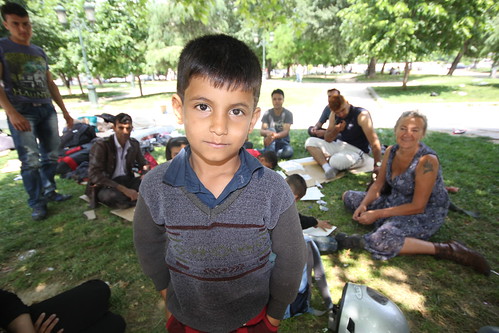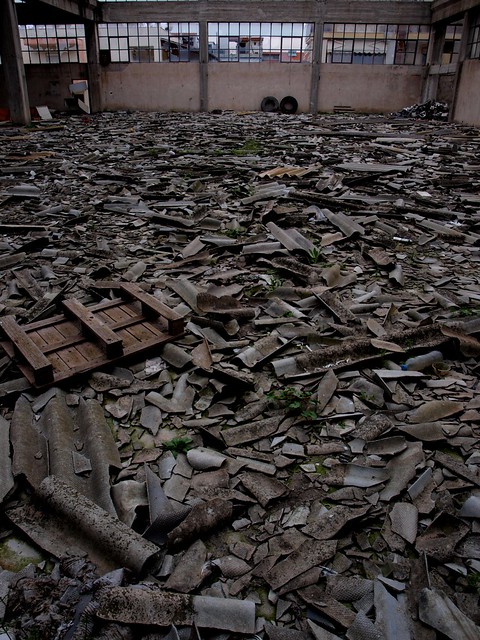For this you will need a few things organised in advanced, other than the ability to give a damn about fellow human beings not mentioned in the gossip columns.
1kg of dried white beans (approximately 1.19e from Lidl)
1kg rice (1.20e) from Lidl)
3 cans of tomatoes (3x0.37e) from... guess where)
1 cartoon of concentrated tomato juice or small tin of tomato paste (0.40e)
4 large onions (0.60e)
8 cloves of garlic 0.20e
1 chilli pepper or a few pinches of chilli powder (0.10e)
1 large zucchini/courgette (0.25e)
loads of green peppers (optional)
1 cup of olive oil (0.40e)
1/2 cup of cooking oil (0.15e)
salt/pepper/oregano/bay leaves/sugar.
Total cost is less than 6 euros. That's not a bad deal on 25-30 portions.
Alas, nothing is ever as simple as it appears in the ads on TV so will need to prepare a few things in advance, so in keeping with that thought you will need to soak the beans overnight (add a tablespoon of baking soda to the water). You could just buy beans in a can but then cost increases even more exponentially than Greece's debt repayments.
Basically, you are making two one pot dishes so will need...... wait for it..... two pots. The one dish is the traditional Greek bean soup known as fasolada, the source material nationwide for endless fart jokes since the time of Plato. The other is a fusion/hybrid/bastardised rice dish designed to provide carbs as cheaply whilst still being edible.
Fasolada recipe
1 Wash the beans well and then add enough water and level tablespoon of salt to cover them, just
like you would cook rice.
2 Boil till they're kind of soft, which may be between 1-2 hours depending on whether the
beans are big or small. (you may need to add more water)
3 In your other pot add 1/2 cup of olive oil (doesn't need to be fancy extra-virgin stuff).
4 Gently fry 3 thickly sliced onions till they are translucent.
5 Add half the chilli pepper/powder and 6 cloves of garlic chopped/crushed/grated/ atomised
6 Cook for few minutes more then add 3 cans of tomato and 1/4 of the tomato paste/concentrated
juice, along with a tablespoon of sugar, teaspoon of salt, handful of oregano and 4-6 bay leaves
7 Cook gently for another 10-15 mins.
8 Put aside till beans are cooked or at least not rock hard.
9 If you can put the tomato mix in the blender and give it a whizz, Makes for better presentation and
easier to serve.
10 Add the tomato mix to the beans and cook on a medium/low heat for another 20-30 minutes.
11 Add the remaining 1/2 cup of olive oil along with more salt/pepper to taste.
How do I know it's ready? Well, the beans shouldn't break a tooth and the sauce should be fairly thick, but that's a matter of personal preference.
Refugee rice
I call it that as I had to think of something quickly this morning when I went to the park and saw that my fasolada dish was nowhere near enough to go around.
1 Slice thickly 1/2 onion and whatever softish vegetable (eg. courgette/zucchini, peppers) are
cheapest or in your fridge and gently fry them in 1/2 cup of cooking oil.
2 After onions have gone translucent, add the remaining chilli pepper/powder and 2-3 cloves of
garlic chopped/crushed/vapourised. Cook for a few minutes.
3 Add 1kg of rice (your choice) and gently fry for a few minutes.
4 Add tablespoon of salt and sugar along with 2 two and a half times much water as rice.
5 Bring to the boil and after turning it down to a milder setting add the remainder of the tomato
concentrate/paste.
6 Cover and leave for 10-15 minutes.
Now you have a recipe that can feed approximately 25-30 people and all for less than the cost of a coffee that frankly, tastes crap.


